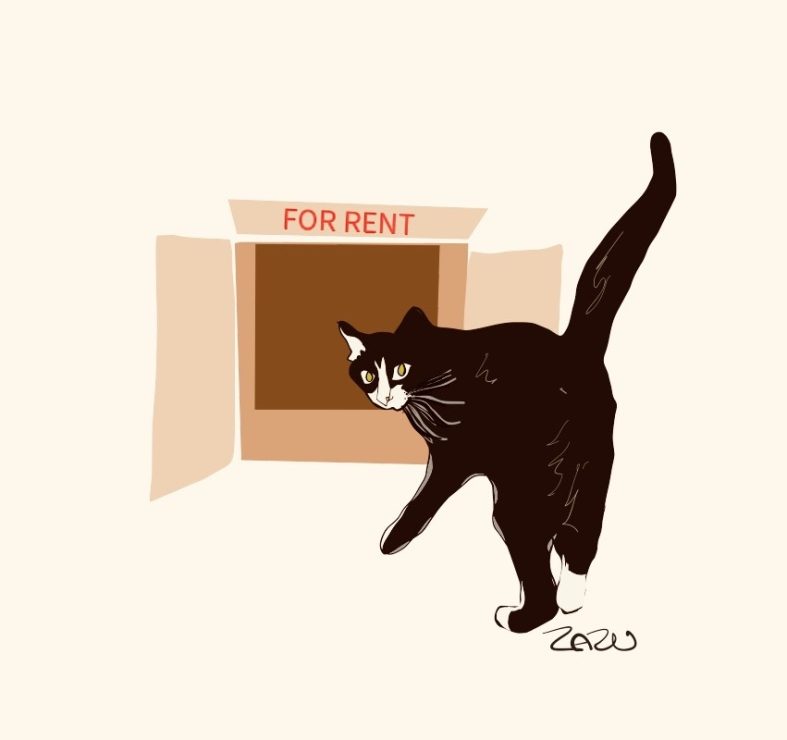Why landlords should realize that some pets are better tenants than people

Illustration by Freyja Zazu.
As a first year student at UVic, I’ve been warned multiple times about the difficulties of finding student housing on the island. Before coming here, I read news articles about students struggling and saw multiple posts on Facebook Marketplace of students looking for homes. However, I didn’t know that one of my best friends, my sweet three-year-old goldendoodle Callie, would make the house hunt even harder.
I wanted to find a place and gain more independence, so I began looking for rentals off campus. I was told by friends to start looking for the coming year as early as January, so I began trying Facebook Marketplace and Places4Students. As I filtered my options on Facebook to “Pets OK,” I saw the number of available homes around campus go from hundreds, to just three.
I understand that animals may cause extra stress for the landlord. Barking, potential damage to the home, pee — I get it. So I began to formulate a careful message to possible landlords:
“I have a very kind dog named Callie. She is a Goldendoodle (Golden Retriever x Poodle), so she is hypoallergenic and does not shed! She is very well trained and has a lovely personality. She is medium-sized (55lbs) and three years old. She only barks when someone is at the door. She is fully house-trained, and we take pride in taking her on at least two walks every day. We make sure she is kept clean with the rainy conditions by wiping or washing her paws when necessary.”
Out of at least ten messages sent, I got one reply of consideration. Every other time, I was ignored or noticed the listing had changed completely to include “No Pets.”
In my first year, I was able to find a place through family connections, and have lived off campus for almost eight months now. However, I am in the process of searching for next year, and the stress of finding a place to live is growing again.
As mentioned before, I understand why some landlords are hesitant to allow pets. There are definitely some cases, like with allergies, in which landlords have a good reason and should make it clear why they do not allow pets. When it comes to wanting to avoid damages to the rental unit, I believe a better step would be more communication and agreement between landlord and renter.
Damages can be caused by people as well. I’ve heard many more stories from my landlord about “crazy people” he’s rented to than “crazy pets.” Although Callie is a fun-lover, she doesn’t party. She won’t be keeping the neighbors up with loud music, have too many friends over, or forget to pay her rent. She rarely gets into disputes with her roommates and won’t threaten to break the lease if she does.
Although I love Callie, it’s hard to think that she makes it harder for me to find a place to live. I work extremely hard to take care of her and ensure she doesn’t cause issues in our home, and I know that a lot of other pet owners do the same. When dogs have behavioral issues, it’s usually not about the dogs themselves but the owner’s willingness to train them. If someone is irresponsible enough to not train their dog to keep their living space damage-free, landlords probably wouldn’t want them as tenants anyways. I wish more landlords understood this.
I think landlords should place more trust in responsible pet owners, and there should be more communication between possible renters and landlords. Having a pet shouldn’t be an automatic deal breaker. If prospective renters are detailed and honest in their descriptions of pets, I think landlords should give them a chance. Before coming to any conclusions, they should at least meet the animal and their owner. At the end of the day, we just want a place to live with our four-legged friends!







